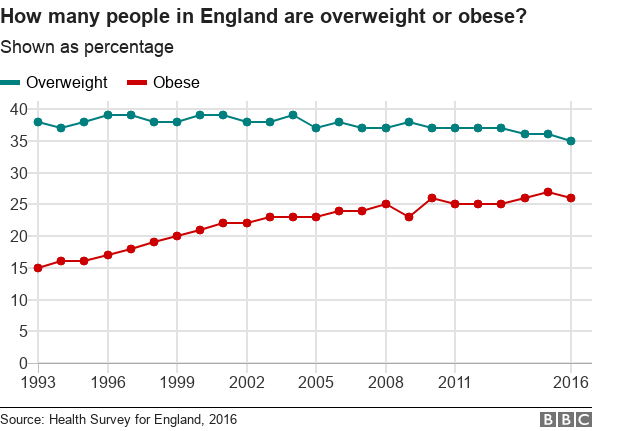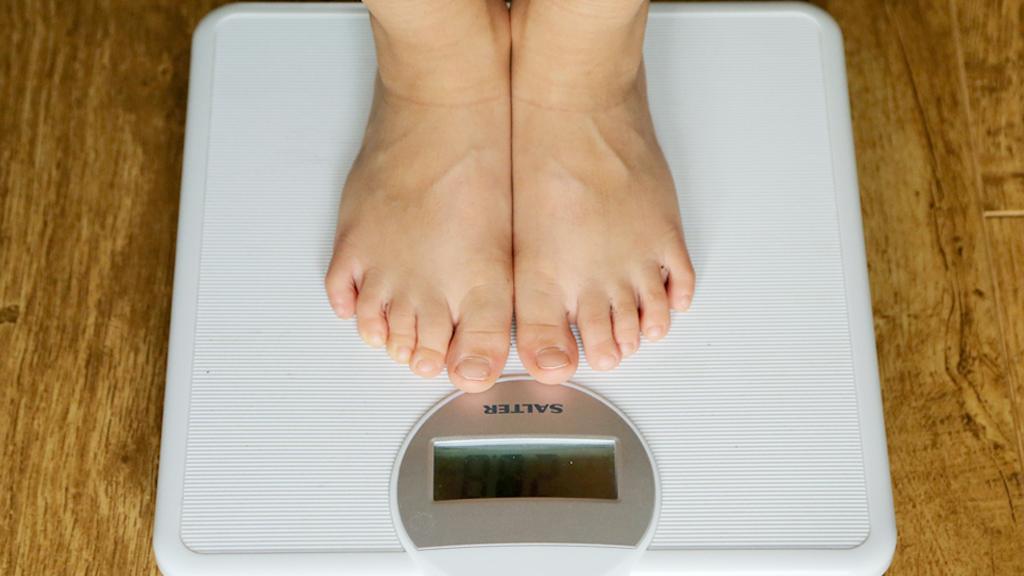Millennials 'set to be fattest generation'
- Published

UK millennials are on track to be the most overweight generation since records began, health experts say.
Based on population trends, more than seven in every 10 people born between the early 1980s and mid-90s will be too fat by the time they reach middle age.
In comparison, about half of the "baby boomer" generation, born just after World War Two, were fat at that age.
Being fat as an adult is linked to 13 different types of cancer, says Cancer Research UK, who did the analysis.
The list includes breast, bowel and kidney cancer, but only 15% of people in the UK are aware of the link, according to the charity.
Child and teen obesity spreading across the globe
UK most overweight country in Western Europe
'Generation fat?'
Britain is the most obese nation in Western Europe, with rates rising faster than in any other developed nation.
Obesity prevalence has been increasing in the UK, from 15% in 1993 to 27% in 2015.

In 2015, the highest obesity levels were seen in people aged 55 to 64, but experts are concerned that younger generations are on track to become fatter still.
Cancer Research UK wants to make the associated health risks clear to the wider public.
Spokeswoman Prof Linda Bauld said: "Extra body fat doesn't just sit there; it sends messages around the body that can cause damage to cells.
"This damage can build up over time and increase the risk of cancer in the same way that damage from smoking causes cancer.
"While these estimates sound bleak, we can stop them becoming a reality.
"Millennials are known for following seemingly healthy food trends, but nothing beats a balanced diet.
"Eating plenty of fruit, vegetables and other fibre filled foods like whole grains, and cutting down on junk food is the best way to keep a healthy weight."
Prof Russell Viner, from the Royal College of Paediatrics and Child Health, said: "There is a danger that being overweight is becoming normalised, as we know that many people struggle to recognise obesity in themselves, and often are unable to see when their child is overweight.
"Knowledge of the links between cancer and smoking have driven smoking rates down dramatically amongst our young people.
"We need the same recognition of the dangers of obesity."
- Published1 January 2018

- Published11 October 2017
